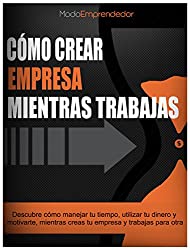
A study from the University of York found that 40% of the decisions we make during the day correspond to our habits. But what if these habits aren’t exactly helping us make the most of time? Here we explain what may be those that do not let you be more productive and how to avoid them.
1. Use of networks social.
Many times we get up with the best intentions to make our day the most productive, however, when it comes to working, our concentration dilates, we look for any excuse and postpone the start or end of our task. We go in search of the news feed on Facebook, the last tweet, or the last photo on Instagram, among other networks. You are probably not going to change this habit overnight, but what you can do are actions to avoid this type of distraction.
A secret to achieve this is to close the session of each of these networks, with this when you have to enter them again, you will have to enter your username and password (at least on your mobile), which will give you enough time to realize that you have already been distracted from your initial task, and consequently it will make you return to your starting point.
read also Evaluate how addicted you are to your phone
2. Modify your mobile notifications.
The step to follow, after having closed the session of your social networks on your mobile device, will be to modify the notification settings. You may think that the fact of having the notice of a new email, a new conversation or a new photo in which you are tagged, will not be enough of a distraction. However, this news makes your mind wander, even for a few seconds, from your initial task, and even tempts you to the point of reviewing it and getting lost again in browsing these networks.
So, if you want to avoid any type of distraction as much as possible and stay productive, it will be better to try to avoid these temptations.
3. Emails.
Your job probably won’t allow you to stay away from the inbox for long. If this is the case, try setting certain email review times, as well as creating a list of emails that need a response most urgently.
Avoid at all costs starting internal conversations with your co-workers using this medium, this only indicates that you are wasting your time, it is more effective to solve that “dialogue” by means of a call.
Also ask yourself if you know and use the tools that your email offers you. Knowing the keyboard shortcuts to quickly reply to an email, configuring filters that automatically organize messages according to your needs, and even creating templates to send general emails will help you save time and be more productive.
4. A single task at a time is no longer “multitasking”.
It seems that the more we do at once, the more productive we are, however, Guy Winch, PhD and author of “Emotional First Aid: Practical Strategies for Treating Failure, Rejection, Guilt and Other Everyday Psychological Injuries” argues that when it comes to attention and productivity, our brain has a finite amount. This is easier to understand if we imagine a circular graph where the biggest slice is taken by the activity we are doing at this precise moment. There isn’t a lot left over to do other things perfectly, except for automatic behaviors like walking and chewing for example.
Trying to do more than one task at a time “wastes” productivity, this author claims, since our attention is “spent” in the act of switching from one task to another, and is not fully maintained on the main activity.
So next time, avoid writing while you’re walking, sending emails when you’re in meetings, or talking on your phone while cooking. One thing at a time will allow you to be more focused.
5. Stop working overtime.
Probably working long hours is already part of your daily habits, keep in mind that being productive is not a matter of how many hours you work, but how efficient you are throughout them. In some cases, working less can produce better results.
You need to distinguish between being busy and being productive. Being busy doesn’t necessarily mean you’re being productive. Productivity is less about time management and more about managing your effort and energy.
Learning how to use the least amount of energy for the best results and benefits is the homework.
And remember, if you are really interested in creating your own business, you can purchase our book “How to create a company while working: Discover how to manage your time, manage your money and motivate yourself while creating a company and working for another” , where you will find all the information you need to found your own company, without having to leave your job.


